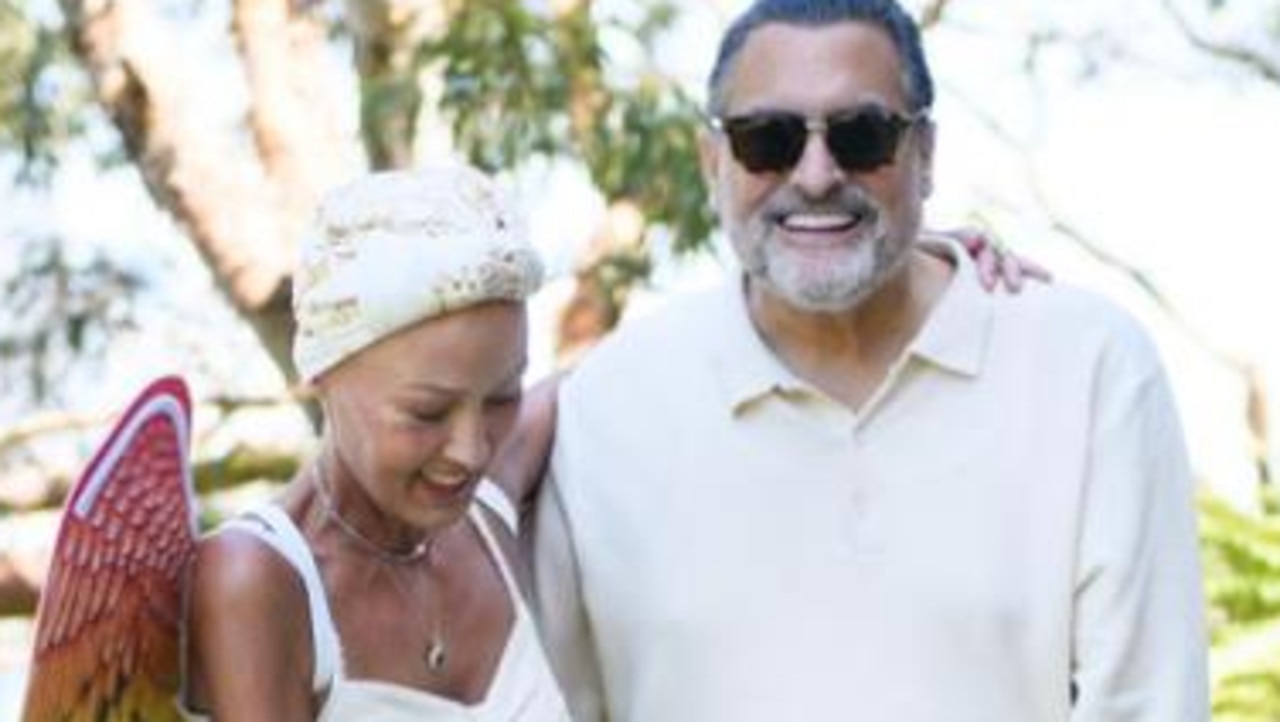Donald Trump’s divisive new travel ban is what his supporters want
US President Donald Trump’s new travel ban has drawn more Republican and voter support, but it’s left others divided. This is what’s changed.
Leaders
Don't miss out on the headlines from Leaders. Followed categories will be added to My News.
US President Donald Trump has signed a new travel order aimed at overcoming the legal challenges but accomplishing the same stated goal: keeping would-be terrorists out of America.
His first executive order was a failure. It temporarily banned all travellers from seven majority-Muslim nations for just eight days before a federal judge blocked it.
Nearly a month later, Trump is back with a new immigration strategy.
This is a look at how the new order compares with the previous one:
HOW ARE BANNED FOREIGNERS AFFECTED?
Old order: Three-month ban on citizens from seven Muslim-majority countries, including those who had valid visas but were outside the United States when the ban was signed.
New order: Three-month ban on issuing new visas for people from six Muslim- majority countries - Iraqi nationals are no longer banned - and exceptions for foreigners from the other six countries: Somalia, Iran, Syria, Sudan, Libya and Yemen. Citizens of those countries with valid visas will be admitted to the US.
WHY WAS IRAQ TAKEN OFF THE LIST?
Old order: Iraq was originally on the list.
New Order: Iraq, which the US invaded in 2003 and which is currently fighting the Islamist militant group Islamic State, is off the list. Iraq, a key US ally, was removed after Secretary of State Rex Tillerson said he spoke with the Iraqi government about its vetting process and felt that the screening system was thorough enough to stand on its own.
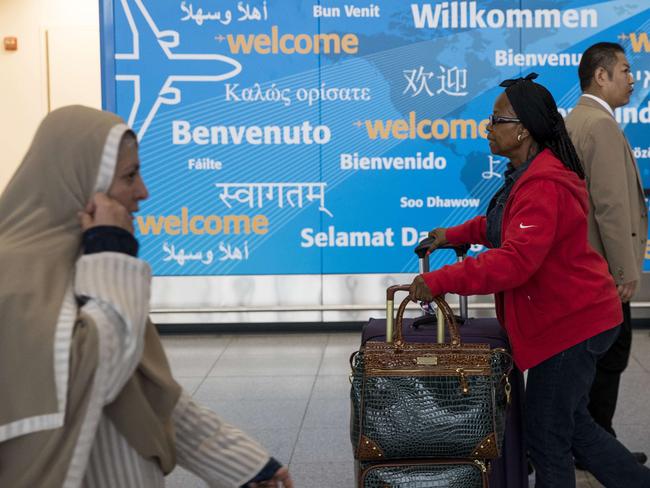
WHERE DO SYRIANS STAND?
Old order: Syrian visitors, immigrants and refugees were barred from the US indefinitely.
New order: Syrians will be treated the same as citizens of the other five countries singled out in the order.
WHAT ABOUT REFUGEES?
Old order: Four-month halt to refugees entering the United States.
New order: The refugee ban remains in place, though people already approved and on their way to the United States will be allowed in.
ANY RELIGIOUS PREFERENCES?
Old order: The first order gave priority to refugees who were members of religious minorities, typically Christians, and claimed religious persecution. That led to concerns the executive order established an unconstitutional religious test for entry into the US
New order: It doesn’t include language giving preference to religious minorities.
ARE GREENCARD, VISA HOLDERS INCLUDED?
Old order: It affected nearly 60,000 visa holders from the seven countries, and was unclear about its impact on legal permanent residents, so-called Greencard holders. That led to temporary detention, and travel delays at airports.
New order: No visas will be revoked solely based on the order, the White House said.
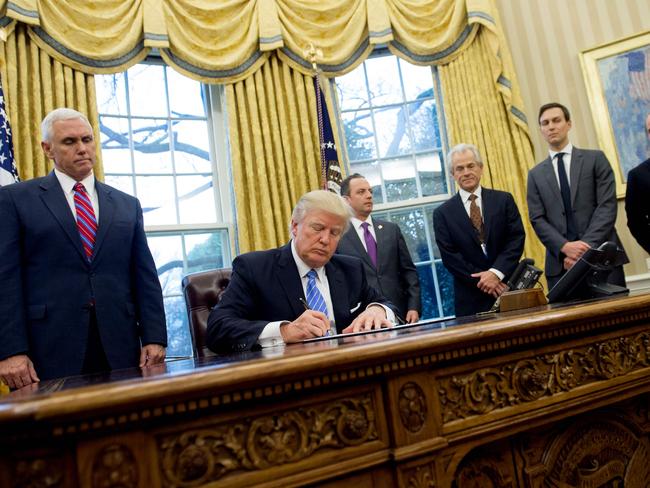
WHEN DOES THE BAN START?
Old order: The January 27 order was immediately put into place, causing chaos and panic at airports as the Homeland Security Department scrambled to figure out who the order covered and how it was to be implemented.
New order: The new order, signed Monday, won’t be affective until March 16. It also revokes the previous edict.
REPUBLICANS SUPPORT NEW BAN
House Speaker Paul Ryan is backing the updated version of President Trump’s contentious travel ban, which bars new visas for citizens from six Muslim-majority countries and shuts down the US refugee program.
During the 2016 presidential campaign, the Wisconsin Republican condemned his proposed ban on Muslims entering the United States.
But in a statement Monday, Ryan says Trump’s revised executive order advances “our shared goal” of protecting the United States.
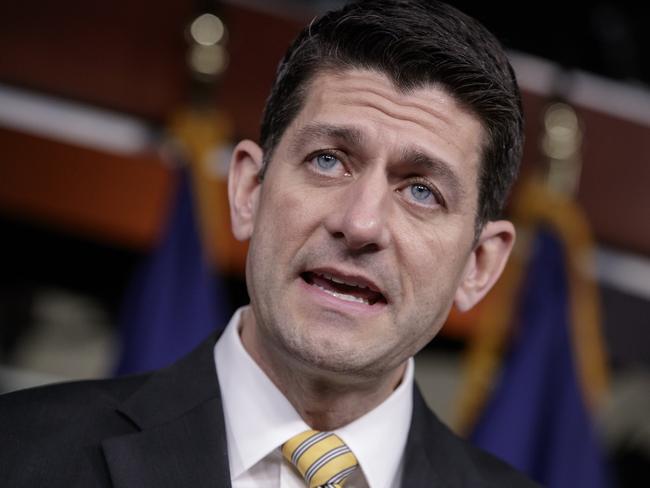
Ryan also commends Trump administration officials for “their hard work on this measure to improve our vetting standards.” Trump’s critics say the focus on predominantly Muslim countries will leave the impression the order is effectively a ban on Muslims.
Another Republican critical of the original version, South Carolina Senator Lindsey Graham, said he believes the revised order will “pass legal muster.”
“I congratulate the administration for modifying the original order to ensure that it is prospective in application, protective of those with valid visas and legal status, and exempts Iraqis, as five thousand Americans are currently fighting alongside them against ISIL,” Graham said.
‘WE HAVE TO PROTECT OUR PEOPLE FIRST’
Mr Trump’s critics may claim that his reasoning for his travel ban is not supported by facts.
But Mr Trump’s supporters say America’s immigration system has been too generous for too long.
“We have to protect our people first,” says Amber Rowland, who works at a local bar, ITV reports.
“Look at Sweden. Sweden is allowing refugees in and they are in a holy war right now. Is that what we need here right now? Our military isn’t strong enough for that right now. We have to build the country up again to be able to help anyone else.”
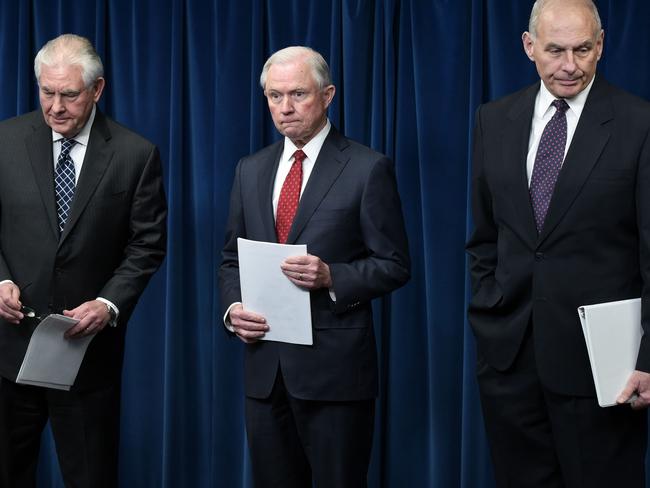
DEMOCRATS TO FIGHT BACK
Democratic officials in Washington, Virginia and Massachusetts are all considering their future steps to take further legal action.
Washington Attorney General Bob Ferguson, who took the Trump administration to court over the constitutionality of the original order, said Monday he still has legal concerns about the updated language.
“I do not take lightly suing the president of the United States,” he said.
Massachusetts Attorney General Maura Healey says she’s considering all legal options in response to President Donald Trump’s reworked travel ban. She calls the revised ban misguided and describes it as “a clear attempt to resurrect a discredited order and fulfill a discriminatory and unconstitutional campaign promise.” Healey, a Democrat, had joined several other attorneys general in a lawsuit that ultimately blocked the original order. Maura isn’t the only Massachusetts Democrat who’s critical of the revised order.
Senator Edward Markey calls the ban discriminatory and says it will serve as a “recruitment tool” for terrorists. Congressman Seth Moulton says the ban targets men, women, and children fleeing persecution.
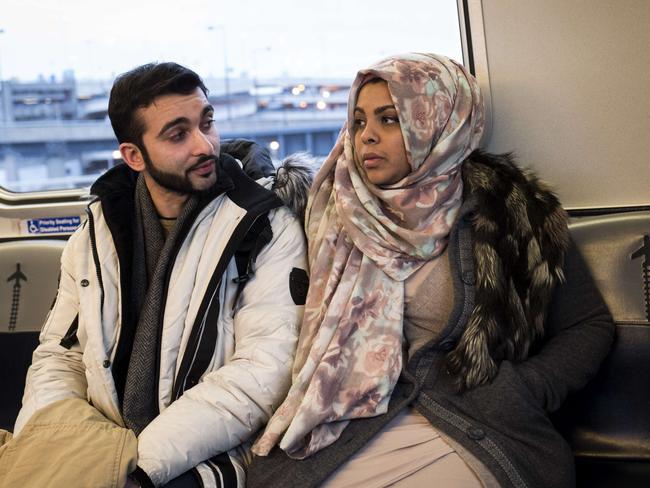
Boston Mayor Martin Walsh says the city will stand by its immigrant community.
Virginia’s attorney general says the Trump administration’s revised travel ban is a tacit admission that the original ban was constitutionally flawed. President Donald Trump issued an order Monday restricting certain travel from six majority-Muslim countries. It significantly scales back an earlier order that prompted judicial intervention barring its implementation. Democrat Mark Herring is one of several attorneys general who sued to stop the ban. He said his office is reviewing its legal response.
He said that while the new order “appears to be significantly scaled back, it still sends a horrible message to the world.”
Virginia Attorney General Mark Herring, who also led a legal challenge to Trump’s first ban, said the new directive still “sends a horrible message to the world.”
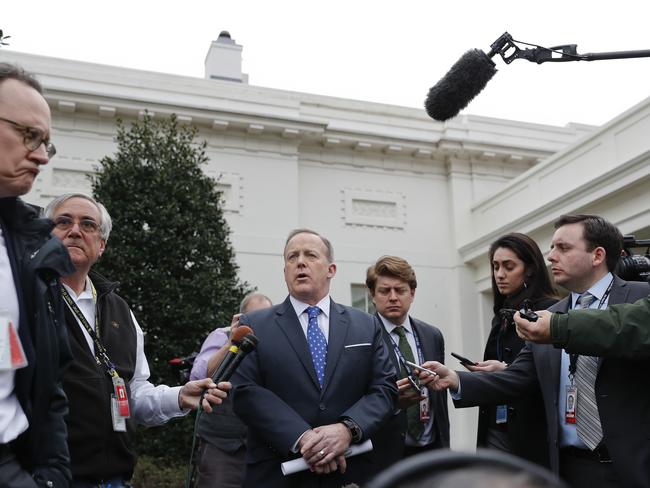
“Our goal has always been to protect the commonwealth of Virginia and our residents who were harmed by President Trump’s ill-conceived, poorly-implemented, and un-American ban, particularly green card holders and those at our businesses and colleges with valid work and student visas,” he said. “It is significant that after we won the nation’s first preliminary injunction against the ban, President Trump has now revoked his original order and apparently exempted all those persons from his revised order.”
Chicago Mayor Rahm Emanuel calling the revision a betrayal of the country’s core values.
“The legal grounds of the first travel ban were questionable at best, and today’s iteration is nothing more than a wolf in sheep’s clothing – different packaging intended to achieve the same result,” Emanuel said in a statement, adding that the order would “slam the door” on refugees fleeing war-torn countries.
The American Civil Liberties Union also said it will move “very quickly” to block Trump’s new travel ban from taking effect, either by amending existing lawsuits that blocked the original order or seeking a new injunction.
Originally published as Donald Trump’s divisive new travel ban is what his supporters want


